They think they’re being practical, but these everyday items are piling up for all the wrong reasons.
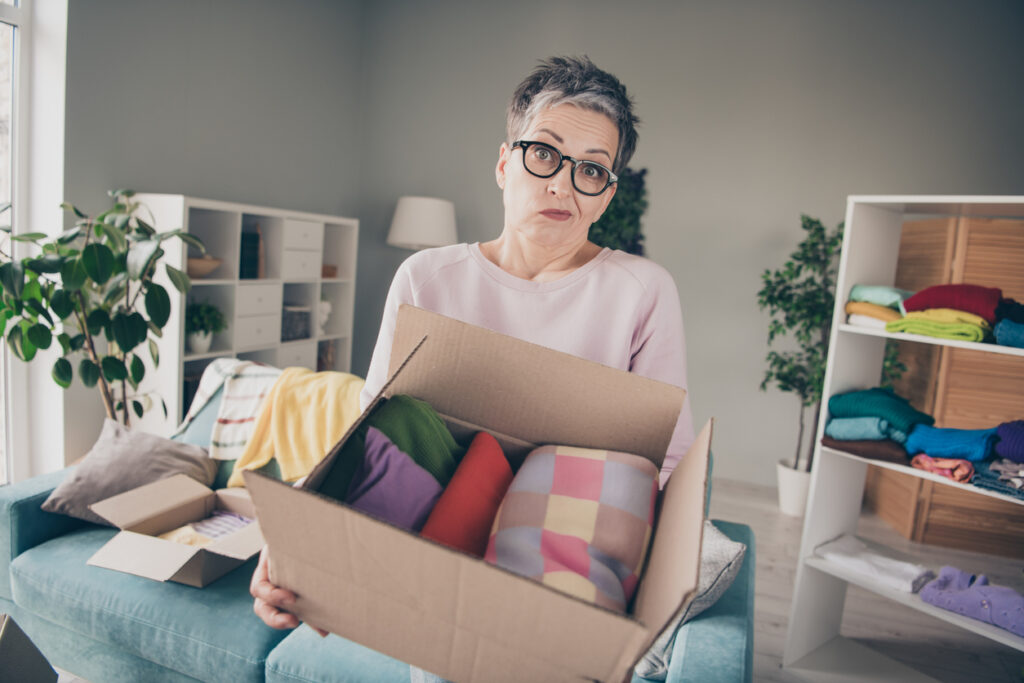
You might not picture yourself as someone who accumulates clutter, but it’s incredible how stealthily these little items start to multiply. Over the years, habits form and emotions get attached to objects you never intended to keep forever. What starts out as a small collection of sentimental items or “practical” spares can gradually expand into full drawers, overflowing shelves, and storage spaces you can barely open. The truth is, many of us fall into these patterns without realizing it, convincing ourselves that one day we’ll need these things—or that they’re too important to let go.
The problem isn’t necessarily about being untidy. In fact, many people who accumulate these items are otherwise organized. But emotional attachment, nostalgia, and “just in case” thinking create silent permission to hold on to things long past their usefulness. The result is a home filled with items that quietly steal space and mental energy. If you’re ready for a gentle wake-up call, take a moment to see how many of these everyday items you’ve been hanging onto for reasons that may not hold up anymore.
1. You Save Old Birthday Cards Because You Can’t Bear to Toss Them
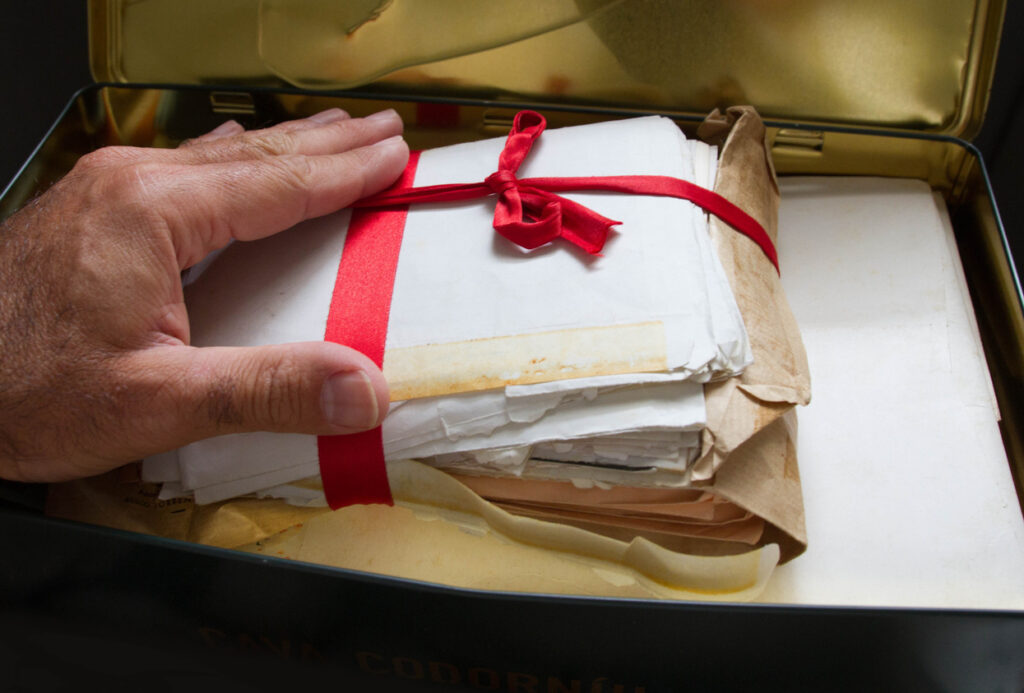
It feels harmless to save a few special cards with meaningful messages, especially when they come from loved ones who took the time to write heartfelt notes. Over the years, though, one or two cards can easily turn into boxes stacked with decades’ worth of greetings. Each card holds a memory, and parting with them can feel like you’re letting go of a small piece of the person or moment they represent.
But as sweet as those intentions are, the memories you cherish don’t live in those boxes. They’re already part of you, safely stored in your heart and mind. When the collection starts to overwhelm your space, it may be time to select a few truly meaningful cards to keep and gently release the rest, as stated by Drew Blankenship at Cleverdude. By doing so, you honor the memories without drowning in the physical clutter that slowly builds over time.
2. You Hold Onto Unused Kitchen Gadgets “Just in Case”
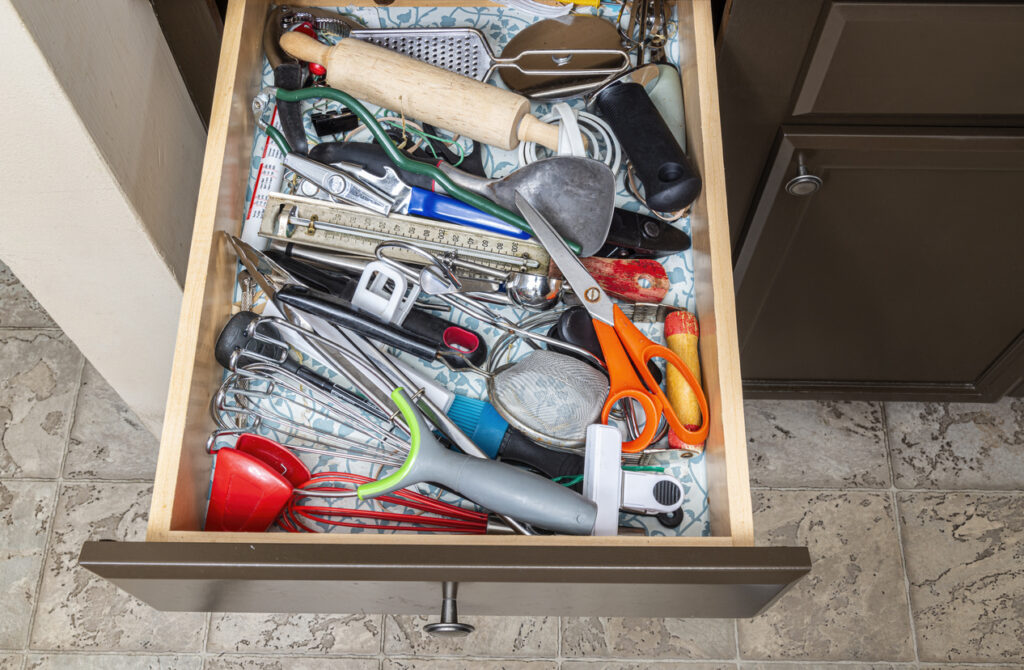
We all fall for those clever kitchen gadgets that promise to make cooking easier or more fun. That avocado slicer, fancy garlic press, or novelty pancake pen seemed like brilliant additions at the time. But after a few uses—or none at all—they end up buried in the back of a drawer, forgotten and untouched for years as newer gadgets take their place.
The hardest part is admitting that you likely won’t need them in the future either, as shared by Georgia McCartney at Yahoo! Life. The “just in case” mentality feels practical on the surface, but it often leads to drawers and cabinets overflowing with tools that serve no real purpose in your current cooking routine. Letting go of these items frees up valuable space and reduces the frustrating scavenger hunt every time you need something you actually use.
3. You Still Have the Clothes You Swore You’d Fit Back Into
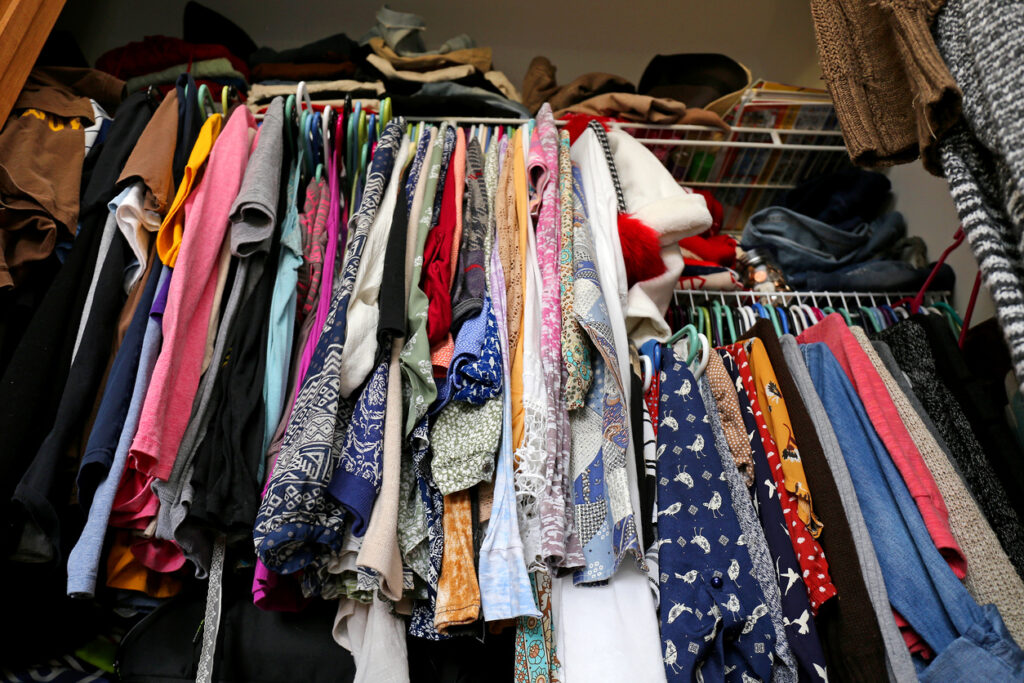
Everyone has a few pieces of clothing tucked away for when they “get back in shape” or lose those last stubborn pounds. Those jeans, dresses, or suits sit in the closet like silent motivators—or reminders of goals not yet reached. But as the years pass, those garments often just become a source of quiet guilt rather than inspiration, says Ace Navarro at IEP Mommy.
Releasing these clothes doesn’t mean you’ve given up; it means you’re making peace with the present. Prioritizing clothes that fit your body as it is today allows you to enjoy getting dressed without that constant reminder of what used to be. It’s an act of kindness toward yourself to fill your closet with pieces that make you feel good right now, rather than clothes that haunt you with old expectations.
4. You Can’t Part with Outdated Tech Because It Was So Expensive
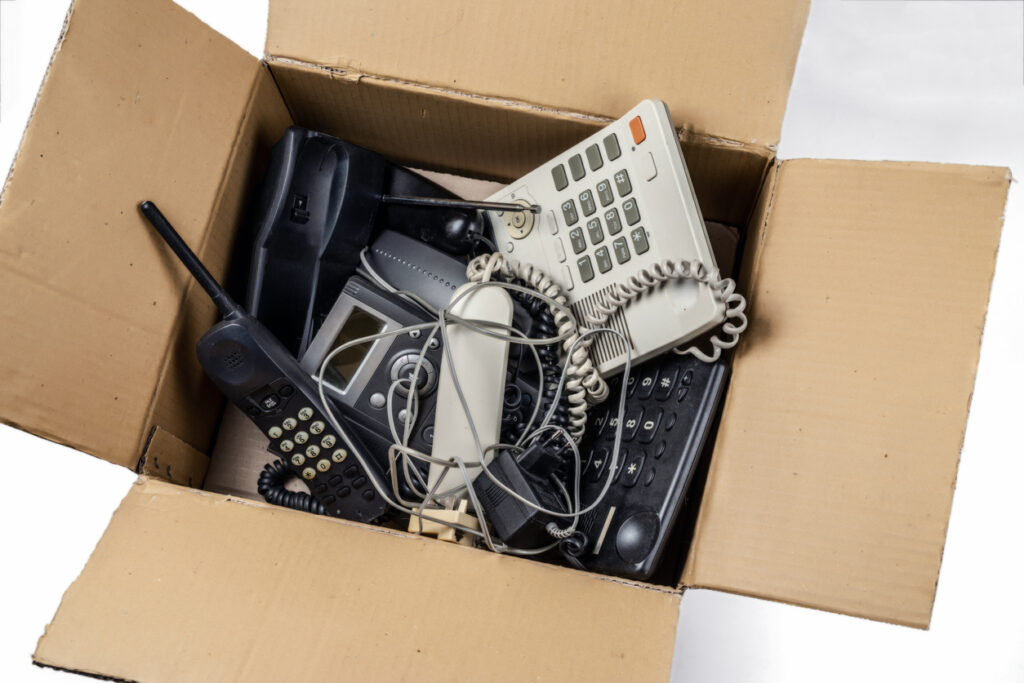
It’s surprisingly easy to let old electronics linger long after they’ve outlived their usefulness. That once top-of-the-line flip phone, ancient laptop, or massive stereo system represented a significant investment at the time, making it hard to face the idea of simply getting rid of it. The price tag still echoes in your mind, making you hesitate.
But keeping outdated tech doesn’t bring that money back—it just eats up precious storage space. Those devices often no longer function properly or can’t even connect to modern systems. Donating, recycling, or responsibly disposing of them gives you a fresh start and clears out clutter that silently weighs you down. Sometimes, letting go is the best way to honor the investment you once made.
5. You Keep Books You’ll Never Read Again (or at All)

Books have a special way of feeling too precious to part with. Whether you’ve read them or not, they carry the weight of knowledge, potential, and personal memories. But as the stacks grow taller and the shelves sag under the weight, it becomes clear that many of those volumes are more aspirational than useful.
If you’re honest with yourself, there are likely plenty of books you’ll never open again—or never got around to reading in the first place. Passing them on to libraries, friends, or donation centers gives those books new life and makes room in your home for titles that truly spark your interest. A carefully curated shelf feels lighter and far more satisfying than walls lined with unread obligations.
6. You Hang Onto Empty Gift Bags Because They’re “Too Nice to Toss”
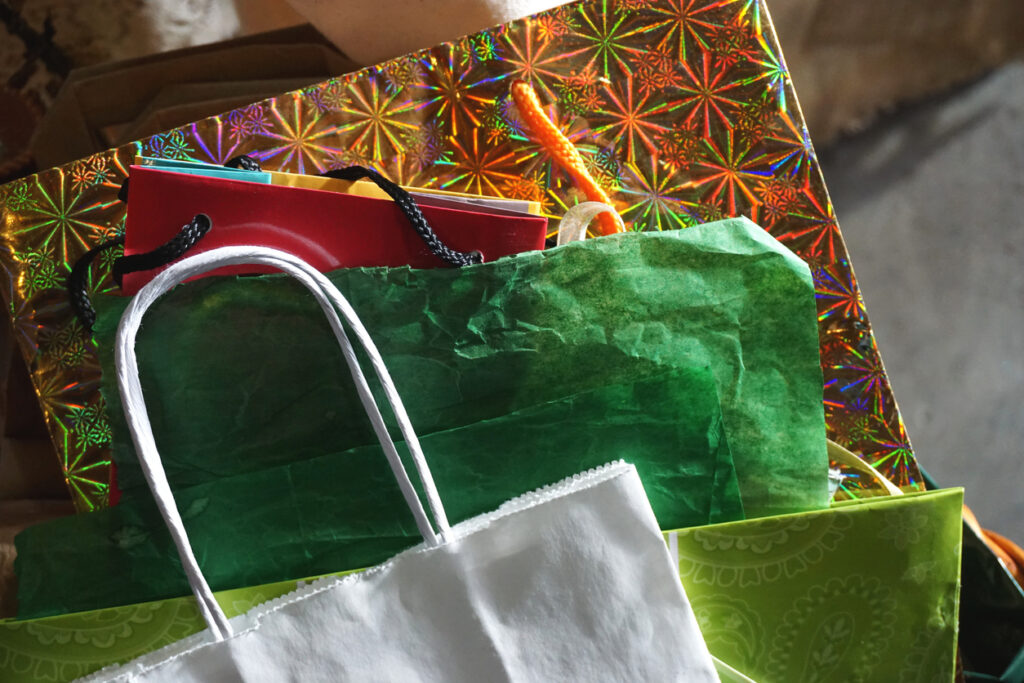
Gift bags are notoriously hard to throw away because they seem so reusable and “nice.” Every birthday, holiday, or celebration adds a few more to the growing stash tucked away in closets, under beds, or in storage bins. They pile up quickly, often forgotten until you accidentally uncover the towering collection while looking for something else.
While reusing a few makes sense, you likely don’t need dozens of gift bags waiting for the next occasion. Set a reasonable limit that fits the number of actual events you host or attend. Recycle or donate the extras, and enjoy the simplicity of knowing exactly where your gift bags are—without wrestling overflowing bins every time you need one.
7. You Store Random Cables Even Though You Don’t Know What They’re For
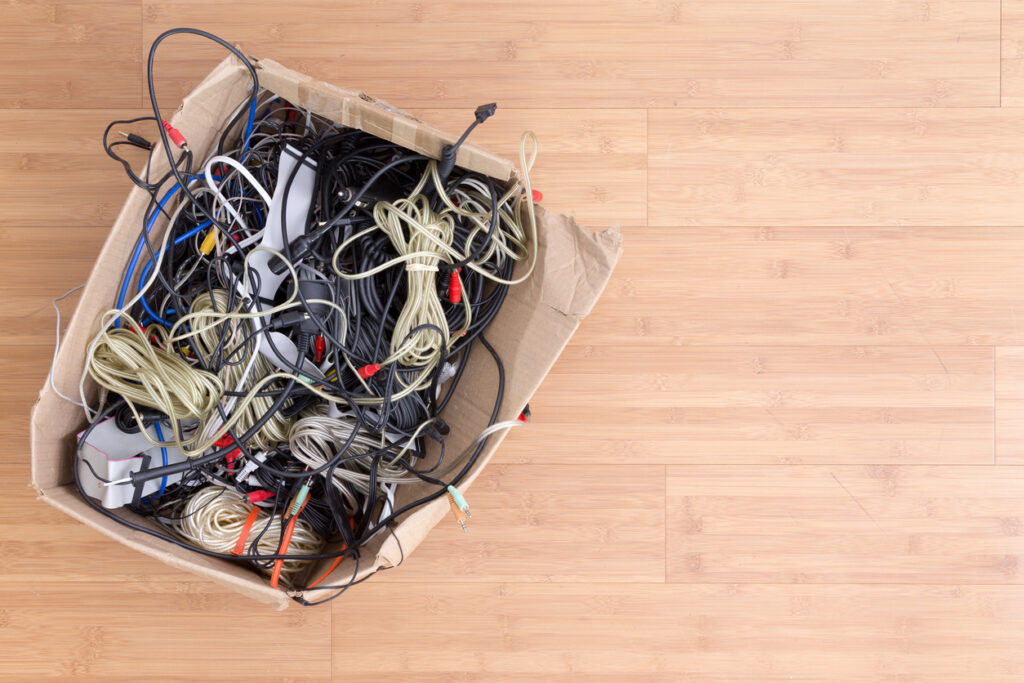
That mysterious box of random chargers, wires, and adapters is a staple in many households. It grows over time as devices are replaced, but the cables remain “just in case” they ever become useful again. The truth is, most of them are outdated, mismatched, or for devices you no longer own.
Holding onto them creates unnecessary clutter and frustration every time you have to sift through the mess to find something specific. Sorting through your cables and keeping only those that match your current devices frees up surprising amounts of space. Plus, when you finally need a replacement cable, you’ll be more likely to purchase exactly what you need rather than digging through a tangled mess of outdated cords.
8. You Save Magazines You Swear You’ll Read Someday

Stacks of old magazines are easy to accumulate. Each issue seems filled with valuable information, beautiful photos, or nostalgic memories. Yet as they gather dust in corners, on shelves, or under coffee tables, it becomes clear that the promise of “someday” rarely arrives.
Letting go of these piles creates space not only physically, but mentally. You aren’t really losing anything by recycling old issues you haven’t touched in years. If there’s an article or feature you truly want to save, consider scanning or photographing it. Otherwise, clearing out the stacks allows your space to breathe, making your home feel lighter and more peaceful.
9. You Keep Half-Used Craft Supplies for That “Someday” Project
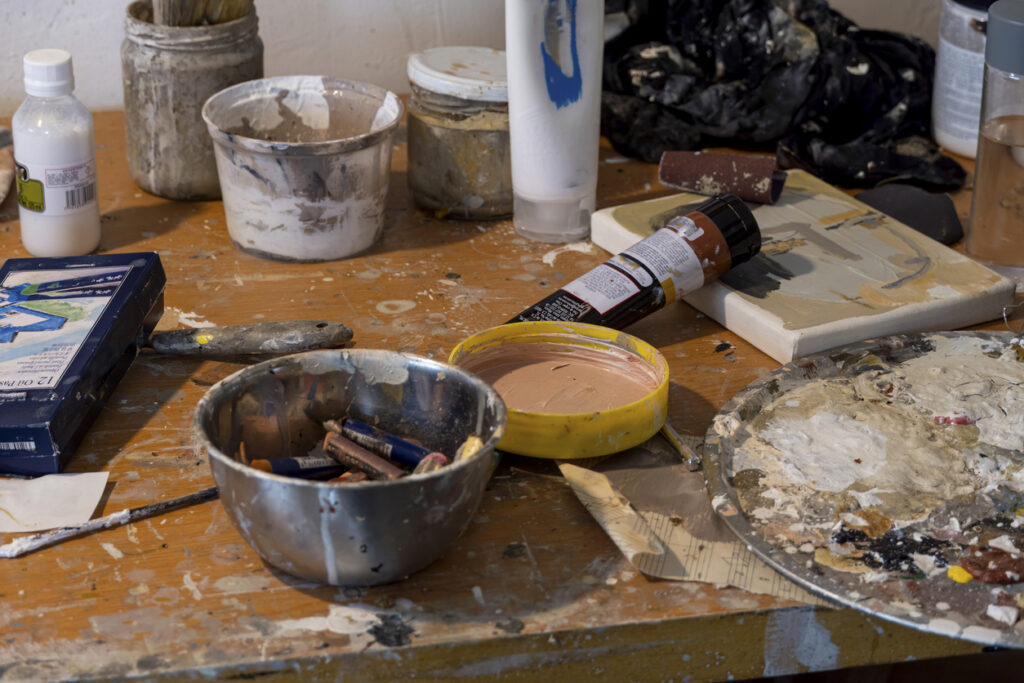
Craft supplies are one of those categories that feel useful even when they’re not being used. Leftover yarn, fabric scraps, and jars of glitter sit waiting for inspiration to strike. But as years go by, many of those supplies simply gather dust while your interests and hobbies evolve.
Keeping them around “just in case” often creates more guilt than creativity. If you haven’t touched them in years, it may be time to pass them along to someone who will actually use them. Schools, community centers, or craft groups are often thrilled to receive donations, and you gain valuable storage space while lifting the silent pressure of unfinished projects.
10. You Can’t Throw Away Old Photo Albums, Even if They’re Falling Apart
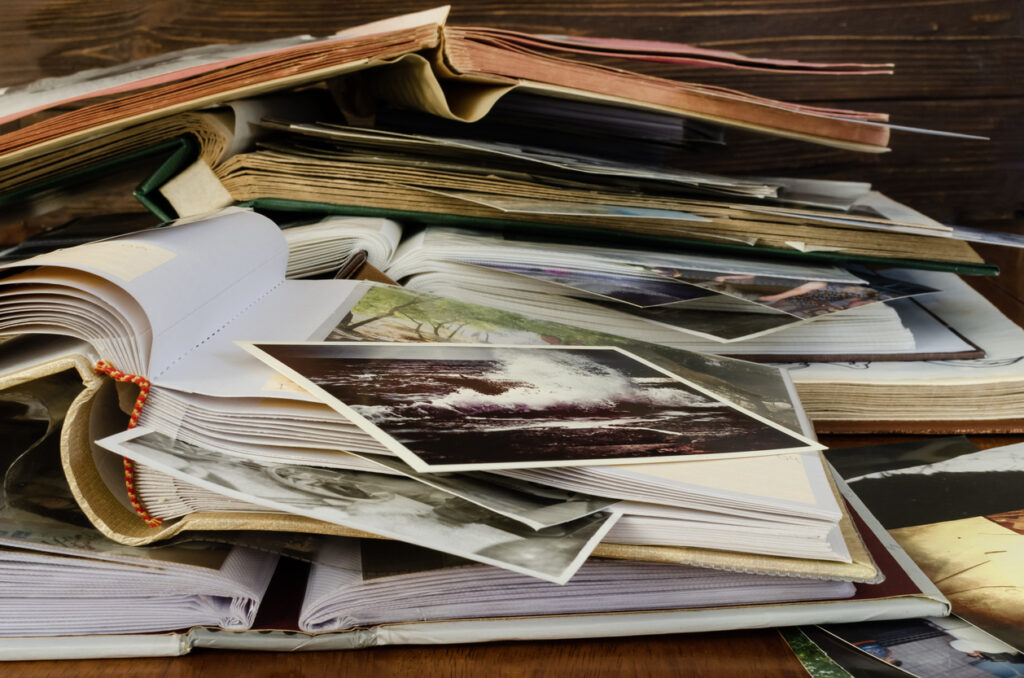
Old photo albums hold irreplaceable memories, making them some of the most difficult items to part with. But as the years pass, albums deteriorate—pages yellow, bindings break, and bulky volumes begin to overtake storage areas. The fear of losing those memories keeps many people from addressing the growing stacks.
Digitizing your photos allows you to preserve those precious moments in a more accessible, permanent format. You can share digital copies easily with family, back them up securely, and finally free up the space that sagging albums once occupied. The memories stay with you while the physical clutter is gently lifted from your life.
11. You Hold Onto Furniture “In Case the Kids Want It Someday”
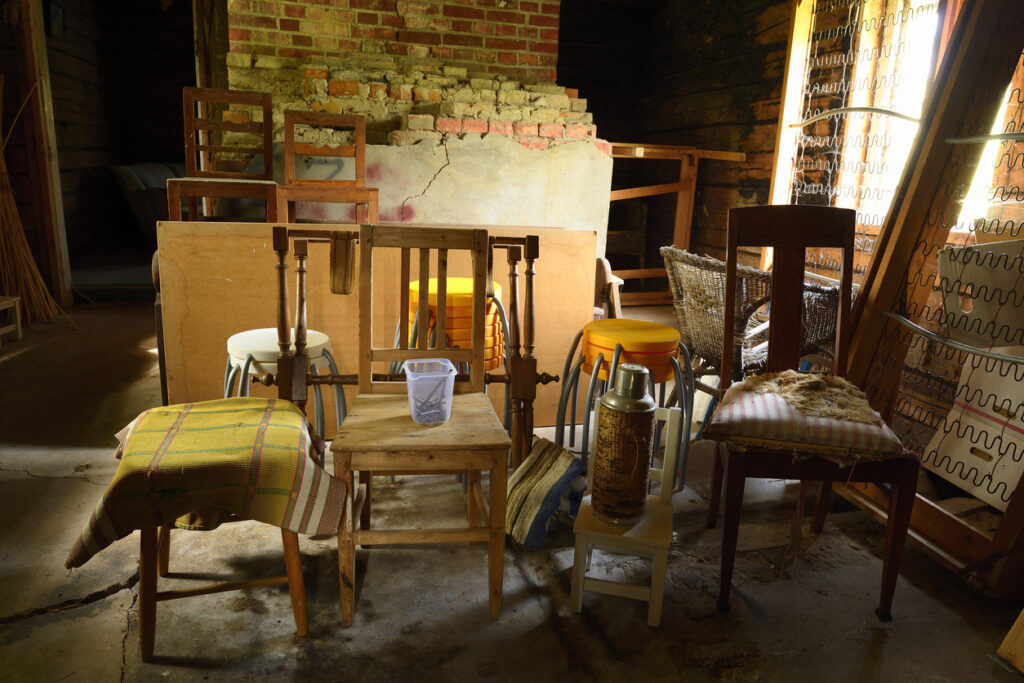
That old dining table, spare dresser, or worn-out recliner might seem worth keeping for your children’s future needs. But the truth is, your kids likely have their own tastes, preferences, and living situations. What feels practical to keep may simply become another burden for them to deal with down the road.
By releasing these pieces now, you reclaim valuable space in your own home and spare your children from feeling obligated to take furniture they don’t need or want. Selling or donating these items ensures they find new homes where they’re appreciated, while you enjoy the relief of decluttered rooms and lighter responsibilities.
12. You’ve Got a Junk Drawer Overflowing with “Useful” Items
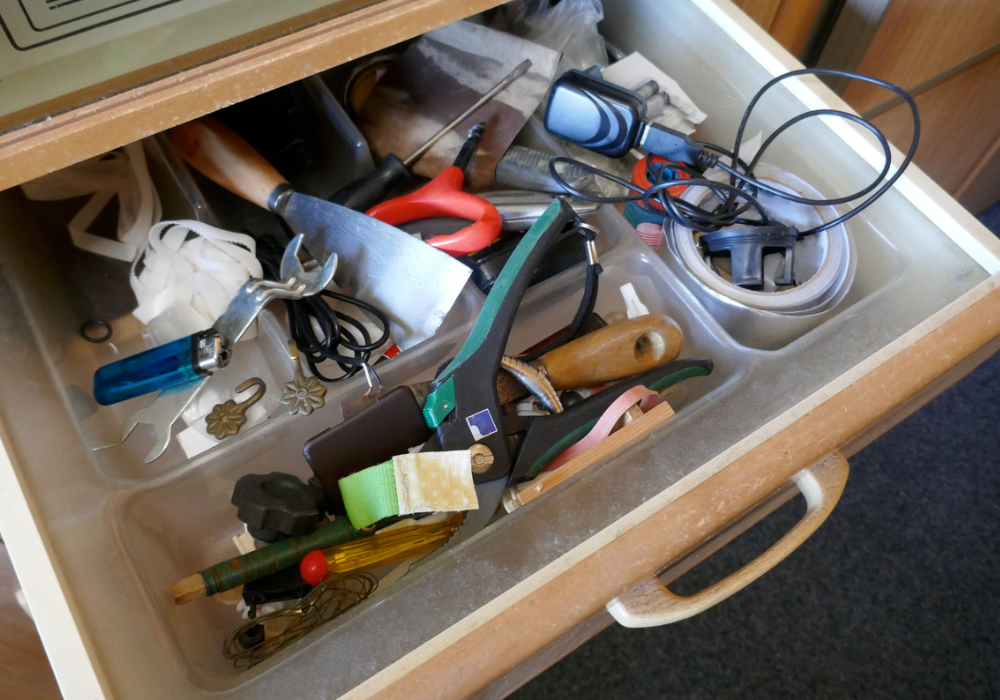
The infamous junk drawer is a common feature in nearly every household. What starts as a small collection of spare batteries, pens, paperclips, and rubber bands quickly transforms into a chaotic mess of items you barely recognize. Mystery keys, expired coupons, and non-functional pens make even simple searches frustrating.
Taking the time to fully empty and sort your junk drawer is incredibly satisfying. Keep only what you genuinely use, and toss the rest with confidence. A well-organized drawer saves you time and frustration while eliminating one more source of silent household stress that builds up more quickly than you realize.
13. You Save Travel Souvenirs That Are Collecting Dust
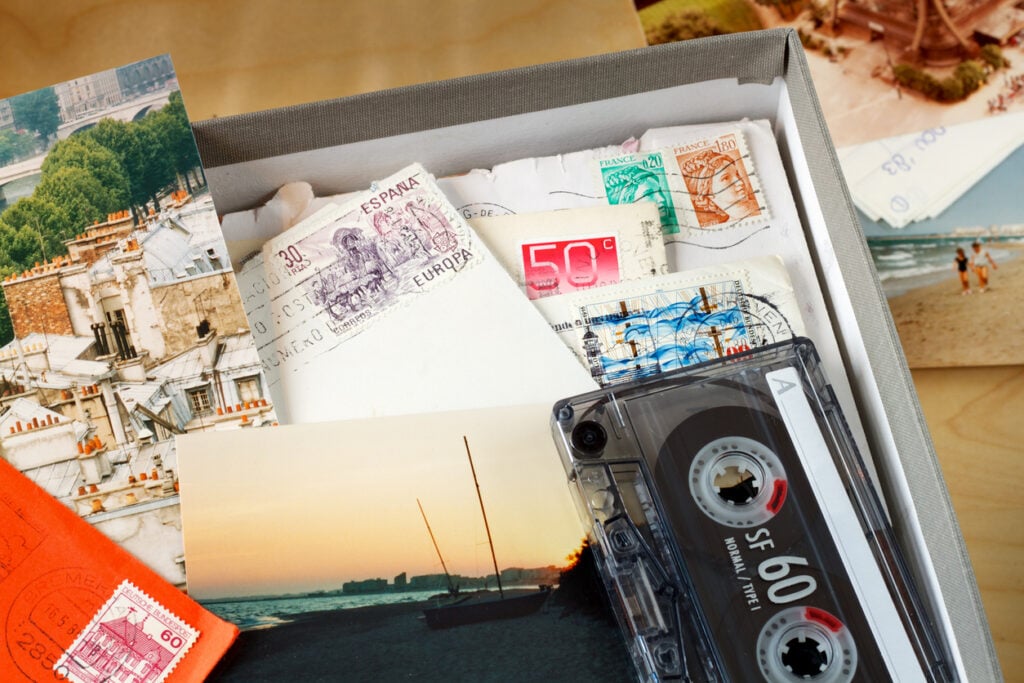
Travel souvenirs are filled with memories of exciting trips and cherished experiences. A small collection can bring joy, but over time, these trinkets often multiply into cluttered shelves and dusty corners. The truth is, you don’t need every keychain, miniature landmark, or novelty mug to remember your adventures.
Selecting a few special keepsakes allows you to celebrate your travels without overwhelming your living space. The memories live in your stories, photos, and heart—not in every souvenir you’ve ever brought home. Freeing yourself from the excess helps highlight the pieces that matter most, while giving you breathing room to create new memories.
14. You Hang Onto Old Tools You’ll Never Use Again
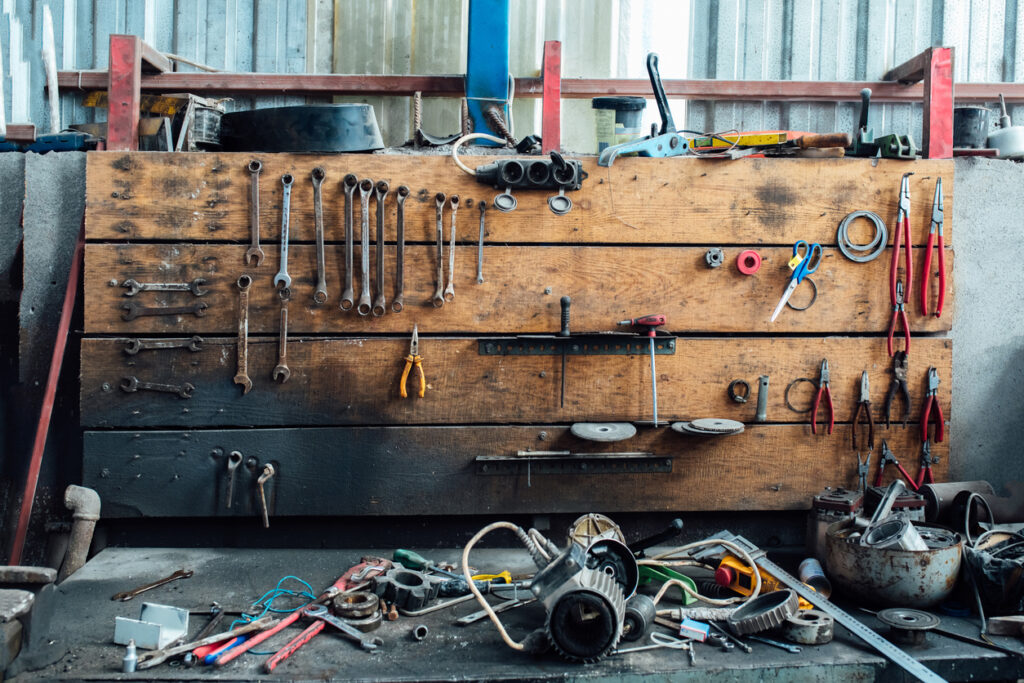
A garage or basement filled with old, rusty tools feels like harmless storage—until you realize how little you actually use them. That collection of wrenches, saws, or power tools may have served you well in the past, but if you haven’t touched them in years, they’re more burden than benefit.
Donating or selling tools you no longer use not only clears valuable space but also puts them into the hands of someone who will appreciate and utilize them. You simplify your workspace, reduce clutter, and make your storage areas more functional—turning what once felt like wasted space into something purposeful again.
